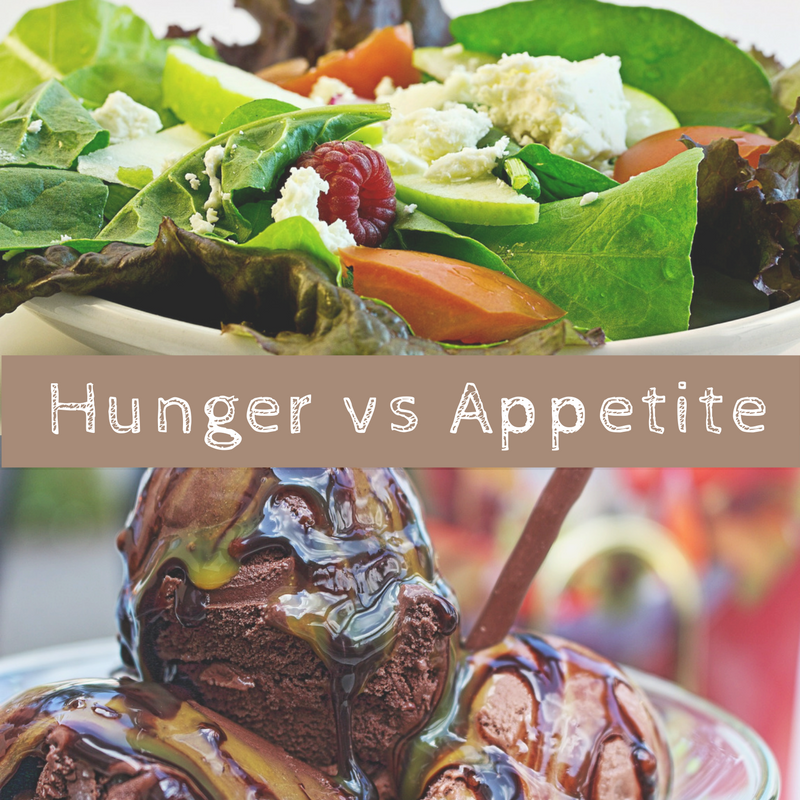Did you know that appetite and hunger are two completely different things?
Hunger:
- The physical need for food
- Occurs with low levels of glucose in your blood, several hours after eating due to a protective mechanism that ensures your body is adequately fueled.
Appetite:
- The desire for food
- A conditioned response to food – a sensory reaction to the look or smell of food
- More closely linked to behavior
- Stems from your biochemistry and emotional connection to food
- Influenced by sensory reactions to food
- Can increase/decrease due to hormones, emotional state, and taste preferences
When hungry, the brain does not look for a signal from the stomach that it is full; the brain looks for the signal of satiety.
“Satiety occurs in your digestive tract – specifically, in your intestines. When you’ve digested and absorbed enough calories and nutrients to satisfy your body’s needs, hormones signal to your brain that ‘I am well nourished now,’ which decreases your desire for more food. Satiety can’t be fooled or faked, as it is dependent on the actual nutrition in your food.”
– It Starts With Food
By nature, we are hardwired to want to eat foods that are sweet, salty, and fatty in taste. The reason for this is because at one time human’s lived off of the land and people were unsure of what plants/animals were safe to eat.
Typically if something had a sweet taste that meant it had nutrients, salty meant it would help you retain fluids, and fatty provided energy and calories. The problem is that in today’s world there are plenty of foods that are sweet, salty, and fatty in taste but have little to no nutrient value. These foods taste good, but there are no signals being sent to the brain that you are receiving nutrients, causing you to eat until your stomach is physically full leaving you with a stronger craving for more food because your body is still lacking nutrients.
Many people hear the term “appetite suppressant” and assume that it will suppress hunger. Contrary to popular belief, appetite suppressants only help to reduce cravings, control portion sizes, and create new habits when sticking to a healthier diet. An appetite suppressant isn’t designed to make a person not want to eat; it’s to keep a person from overeating. When taking the suppressant a person feels fuller quicker and only feels hunger when they are truly hungry.
A good way to determine if you are truly hungry rather than just having a craving is to determine whether you’d eat something healthy that is nutrient dense or if you strictly want the food you are craving. If the thought of eating a chicken breast, broccoli, or a piece of fruit doesn’t sound appetizing, then it’s more than likely your appetite speaking and not true hunger.

Sources:
“It Starts With Food” – Melissa Hartwig, Dallas Hartwig

